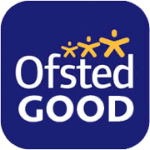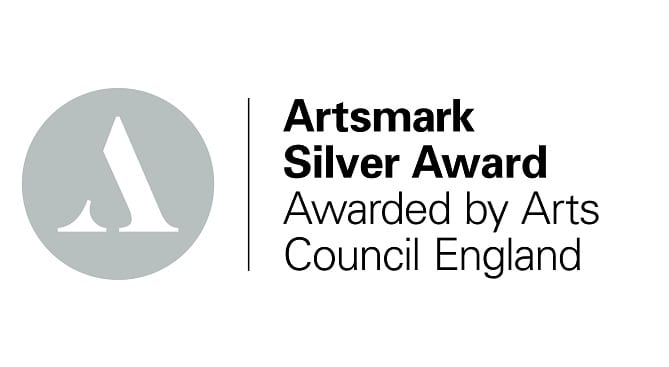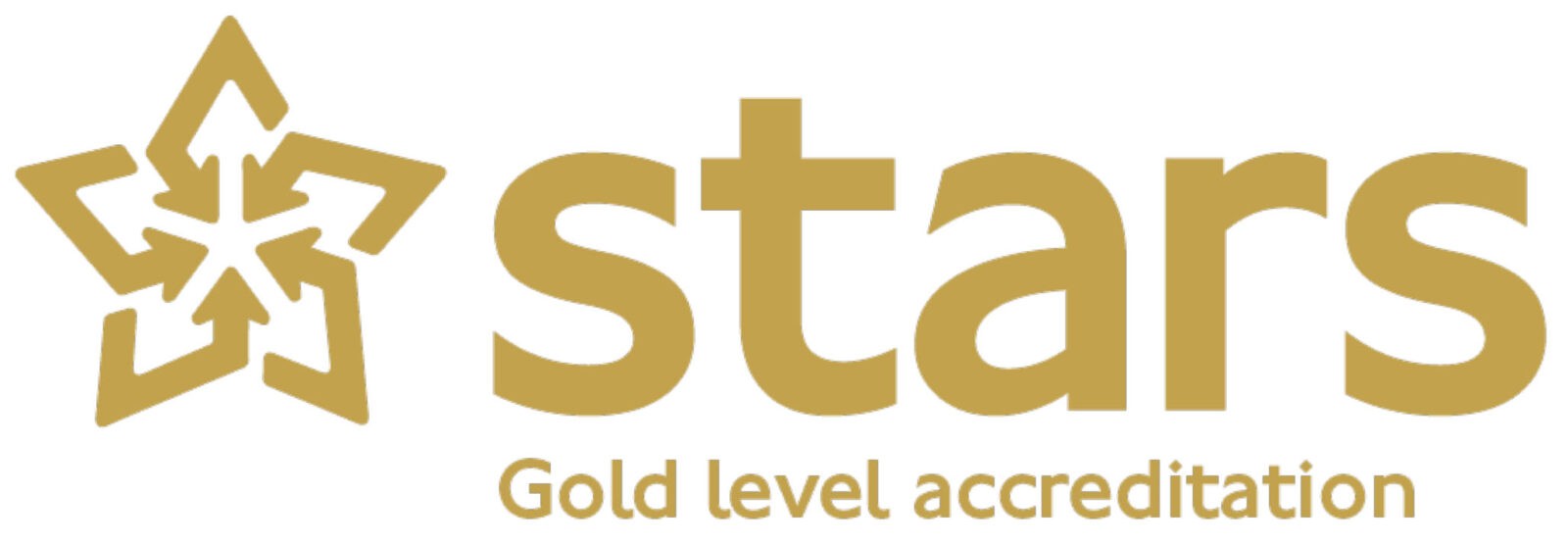Pupil premium strategy statement – Simon Marks Jewish Primary School
This statement details Simon Marks’s use of pupil premium (and recovery premium) funding to help improve the attainment of our disadvantaged pupils.
It outlines our pupil premium strategy, how we intend to spend the funding in this academic year and the outcomes for disadvantaged pupils last academic year.
School overview
| Detail | Data |
| Number of pupils in school | 125 |
| Proportion (%) of pupil premium eligible pupils | 25% |
| Academic year/years that our current pupil premium strategy plan covers (3 year plans are recommended – you must still publish an updated statement each academic year) | 2024-2027 |
| Date this statement was published | December 2024 |
| Date on which it will be reviewed | December 2025 |
Funding overview
| Detail | Amount |
| Pupil premium funding allocation this academic year | £ £43,283.00 |
| Recovery premium funding allocation this academic year Recovery premium received in academic year 2023/24 cannot be carried forward beyond August 31, 2024. | £0 |
| Pupil premium funding carried forward from previous years (enter £0 if not applicable) | £0 |
| Total budget for this academic year If your school is an academy in a trust that pools this funding, state the amount available to your school this academic year | £ £43,283.00 |
Part A: Pupil premium strategy plan
Statement of intent
| We recognise that the Covid 19 pandemic and following lockdowns have affected our entire school community in a way in which no amount of funding will ease the pain and suffering that some of our families have experienced. However, with every penny spent we will take into consideration the mental health and emotional wellbeing of all our children as well as addressing their academic needs. All our work is aimed and carried out within our Jewish school ethos and values. We ensure that teaching and learning opportunities meet the needs of all our pupils, both academically, physically and emotioanlly. We ensure that appropriate provision is made for pupils who belong to vulnerable groups, this includes ensuring that the needs of socially disadvantaged pupils are adequately assessed and addressed. We are committed to provide opportunities for personalised learning and accelerating progress for all pupils and in particular vulnerable pupils and those adversely affected by the current climate. In making provision for socially disadvantaged pupils, we recognise that not all pupils who receive free school meals will be socially disadvantaged. We also recognise that not all pupils who are socially disadvantaged are registered or qualify for free school meals. Therefore, we reserve the right to allocate the Pupil Premium funding to support any pupil or groups of pupils the school has legitimately identified as being socially disadvantaged. Pupil Premium funding will be allocated following a needs analysis which will identify priority classes, groups or individuals. Limited funding and resources mean that not all children receiving free school meals will be in receipt of pupil premium interventions at one time. All our work funded through the pupil premium will be aimed at accelerating progress moving children to at least age-related expectations and ensuring access to a rich, broad and balanced curriculum and taking into consideration their emotional well-being. Pupil Premium resources may also be used to target able children receiving the pupil premium grant to achieve end of year expectations, particularly at the end of key stages, thus further supporting their transition to the next phase in their education. |
Challenges
This details the key challenges to achievement that we have identified among our disadvantaged pupils.
| Challenge number | Detail of challenge |
| Outcomes for disadvantaged pupils is lower than outcomes for non-disadvantaged pupils. | Many disadvantaged pupils at our school start their education at a lower level of achievement in reading, writing, mathematics and oracy than other pupils. They have had less exposure to a wide vocabulary and less experience of number and familiarity with reading. Pupils often lack metacognitive approaches. Assessments show that poor memory skills and the inability to transfer knowledge to long term memory can impact pupil progress and attainment. |
| 2. The ongoing impact of lockdown | Consecutive lockdowns have impacted not only our PPG pupils but all children. We are seeing that lack of activity and experiences have further limited vocabulary development (we are observing children struggling with finding vocabulary and imaginative skills), mathematical recall strategies (forgetting how to engage their brains in basic calculations), and most of all pupils fine and gross motor coordination skills, (we are observing children falling over their own feet, unable to climb stairs, and many more episodes of children falling in the playground). The research shows that disadvantaged children were more adversely affected by the covid lockdowns that non disadvantaged children. In addition, some children with special needs have been further impacted through delays in medical appointments. The impact of COVID 19 and loss of direct teaching has had a significant impact on the academic attainment of pupils across school, particularly at higher standard. Furthermore, the legacy of COVID 19 continues to impact on the emotional wellbeing of pupils and families in the school. |
| 3. Limited cultural capital | Many of our disadvantaged pupils live in cramped, busy households which limits their access to materials and experiences supportive of educational success. This affects pupil confidence and knowledge of the key basic skills such as times tables and spelling development. Some of the parents of our disadvantaged pupils lack the confidence to support their children with learning at home. Some pupils have limited access to cultural experiences. In addition, a limiting factor in the development of cultural capital is the deficit in “digital capital” amongst many of our PPG pupils. |
| 4 Poor emotional regulation | Some pupils find it difficult to regulate their emotions. This can be for many reasons including: a special educational need, early childhood trauma and mental health difficulties. Some of our pupils in receipt of the Pupil Premium Grant have low self-confidence and difficulty in regulating their emotions which acts as a barrier to their educational success. In addition, recently, some pupils have lost family members and this has impacted on these pupils’ emotional regulation. |
| 5. Attendance | Missed learning opportunities through school absence has had a negative impact upon pupils’ social and emotional development. |
Intended outcomes
This explains the outcomes we are aiming for by the end of our current strategy plan, and how we will measure whether they have been achieved.
| Intended outcome | Success criteria |
| To ensure that disadvantaged pupils achieve at least as well as non-disadvantaged in the phonics check, times table check, at the end of KS1 in reading, writing and mathematics and by the end of KS2 in reading, writing, mathematics and GSP. | Do disadvantaged pupils achieve at least as well as non-disadvantaged pupils in listed areas? |
| To ensure that disadvantaged pupils in EYFS close the gap between baseline and the end of their Reception year. | Do disadvantaged pupils achieve at least as well as non-disadvantaged pupils in listed areas? |
| To increase the number of disadvantaged pupils who achieve at a greater depth at the end of KS1 and KS2 across reading, writing, mathematics. | Do disadvantaged pupils achieve at least as well as non-disadvantaged pupils in listed areas at GD? |
| To ensure the attendance of pupils in receipt of PPG is above 96% | There will be a consistently sharp focus by teachers on the attendance and punctuality of disadvantaged pupils. • Attendance and punctuality of targeted pupils will improve to be in line with all pupils. • persistent absence will align with all pupils and the national average |
| To address the gap in cultural capital through enrichment experiences to enable structured opportunities to develop knowledge, language, and communication. | As they move through the school, all children have sustained engagement across the curriculum in various enriching activities. Disadvantaged pupils access a range of subsidised and additional opportunities as they move through the school. |
Activity in this academic year
This details how we intend to spend our pupil premium (and recovery premium) funding this academic year to address the challenges listed above.
Teaching (for example, CPD, recruitment and retention)
Budgeted cost: £15,000
| Activity | Evidence that supports this approach | Challenge number(s) addressed |
| Further develop teacher knowledge and pedagogical expertise through staff professional development including: ASD training NPQ training Programme of meetings on retention and metacognition. Mindfulness and Laughter therapy | Good teaching is the most important lever schools have to improve outcomes for disadvantaged pupils (The EEF Guide to Pupil Premium 2019) Metacognition and Self-regulated Learning (EEF, 2021) states that teachers should acquire the professional understanding and skills to develop their pupils’ metacognitive knowledge. Evidence suggests the use of ‘metacognitive strategies’ can be worth the equivalent of an additional +7 months’ progress when used effectively. Simon Marks has observed that best practice incorporates metacognition and that this has been a key factor in improving outcomes for disadvantaged pupils. | 1, 2, 4 |
| Promote the recruitment and retention of staff through: Provide opportunities to reduce workload through subject leader time. Provide cover for staff so that they can participate in subject leader duties. Empower staff by keeping them ‘in the know’ with regular morning briefings. Ensure that there is an active on-site social purpose-pool table, gym equipment. | The EEF suggests that: “Managing workload and offering effective professional development are key to retaining great teachers, which, in turn, is crucial to maintaining a high standard of teaching and learning”. Simon Marks is committed to promoting good mental health in its staffing body. Positive mental health supports improved teaching and improved outcomes for disadvantaged pupils. | 1,2, 4 |
| Utilise Technology and other resources to support learning. This includes: TT Rockstars Purple Mash LGFL resources Laptops loan system Computing clubs. | The EEF outline how such resources can be used to improve teaching in the document Using Digital Technology to Improve Learning. Simon Marks has noted the positive impact that such technology has had on pupils. It also seeks to limit the disadvantages that some families face regarding lack of technology at home. | 1,2,3 |
Targeted academic support (for example, tutoring, one-to-one support, structured interventions)
Budgeted cost: £ 18,500
| Activity | Evidence that supports this approach | Challenge number(s) addressed |
| Improve outcomes in Year 6 reading, writing and maths through deployment of Deputy Head and Learning Mentor. 5 x week. | Evidence in EEF Teaching and Learning Toolkit. | 1,2, 3 |
| Targeted speech and language interventions led by TAs | Research shows that children from lower socioeconomic households have a word gap compared to those who live in professional households. This word gap significantly impacts achievement. Children with low levels of vocabulary are four times more likely to have reading difficulties in adulthood, three times as likely to suffer from mental health problems and twice as likely to be unemployed in adulthood. As an inclusive school, Simon Marks values and promotes strategies which develop and broaden pupils’ language. The school notes that this is an area of particular need for pupils that are disadvantaged and on the SEN register. | 1, 2, 3 |
| Targeted, in class support to meet the needs of disadvantaged pupils with SEN | EEF’s “5 a day approach to teaching” (including cognitive and metacognitive strategies). Simon Marks has observed disadvantaged SEND pupils benefit from input from highly-skilled and well-trained TAs. | 1, 2, 3 |
| Daily maths interventions for bottom 20% | Research from the EEF outlines the efficacy of this. Simon Marks believes that short “keeping up” sessions for identified pupils promotes engagement and understanding for pupils. | 1,2, 3 |
| Phonics intervention Year 1 and 2 TA to work with bottom 20%. Year 1 and 2 TA to provide keeping-up intervention to pupils that did not pass phonics screening | Phonics approaches have a strong evidence base that indicates a positive impact on the accuracy of word reading (though not necessarily comprehension), particularly for disadvantaged pupils (Phonics | Toolkit Strand | Education Endowment Foundation | EEF). Data indicates that Simon Marks has produced phonics outcomes that have been consistently greater than local and national. Part of out strategy has been the implementation of focused phonics interventions for targeted pupils. | 1, 2, 3 |
Wider strategies (for example, related to attendance, behaviour, wellbeing)
Budgeted cost: £ 18,000
| Activity | Evidence that supports this approach | Challenge number(s) addressed |
| To support pupils’ social, emotional, and behavioural needs, the school will: Deploy the Learning mentor and provide a targeted package of support for identified pupils. Use Hamakom mindfulness sessions. Provide opportunities for parents to visit the school and into lunch. Train pupils on laughter therapy. | Evidence suggests that children from disadvantaged backgrounds have, on average, weaker social and emotional skills at all ages than their more affluent peers. These skills are likely to influence a range of outcomes for pupils: lower skills in this area are linked with poorer mental health and lower academic attainment. https://educationendowmentfoundation.org.uk /education-evidence/teaching-learningtoolkit/social-and-emotional-learning Simon Marks notes that some pupils need to have their emotional needs met in order to focus on their learning. There are several examples of pupils with high-needs who are having these needs managed better as a direct result of strong support from the leaning mentor and other initiatives. For example, pupils have successfully utilised the evidence-based skills that they have developed in previous Hamakom sessions. | 4 |
| Supporting attendance, including approaches outlined in the working together to improve school attendance guidance. Learning Mentor/ DHT deployed to monitor attendance and liaise with relevant outside agencies, such as attendance officers or learning mentors, about pupils’ development in these areas. This will involve training and release time for staff to develop and implement new procedures where appropriate. | Importance of this outlined in DfE’s Working Together to Improve Attendance In the previous academic year, rates of absenteeism were greater in the school’s disadvantaged group than the non-disadvantaged group. | 1,2,3,5 |
| Extracurricular activities to promote: cultural capital, participation in physical activity, arts participation. This will include: Ice skating trip. Water park trip. Class trips including canoeing. Cinema trips. Middlesex cricket coaching visits. We Jam music sessions. Author visits. | The EEF Menu of Approaches document outlines the importance of this on pupil development. Simon Marks is committed to ensuring that pupils gain exposure to activities which promote pupils’ cultural capital and view this area as significant in preparing pupils for life in the future. | 1,2,3,4,5 |
| Subsidise trips and uniform. | Simon Marks believes that no pupil should face the financial barrier of not attending school trips (day trips or residential) or wearing school uniform. | 1,2,3,4,5 |
| Extended school/ wraparound provision. Subsidised Breakfast club to prepare pupils for the school day. After school clubs to support pupils’ learning. | Breakfast club supports children who have barriers coming to school in the morning – start of the day transition to class is more purposeful. Some parents don’t have access to funds to pay for additional clubs. Simon Marks has noted that some working parents don’t have the additional financial means of paying for breakfast club. Wraparound care can provide some pupils with food and access to additional learning. | 1,2,3,4,5 |
Total budgeted cost: £ 51,500
Part B: Review of the previous academic year
Outcomes for disadvantaged pupils
| Intended outcome | Review |
| To ensure that disadvantaged pupils achieve at least as well as all pupils nationally in the phonics check, times table check, at the end of KS2 in reading, writing, mathematics and GPS. | Phonics check PPG: 25% achieved. Non-PPG: 90 %achieved. All pupils nationally: 71% 75 % of the PPG pupils are taught in the ARP. All pupils have an EHCP and receive a highly-specialised, individual curriculum. 100 % of PPG pupils in the mainstream passed the phonics screening. Times tables check PPG: 19.5 Non-PPG: 19.8 All pupils nationally: 20.6 Simon Marks is broadly in line with national standards. PPG average skewed by one high-needs pupil. KS2 PPG RWM EXS+: 100% Non-PPG: 100% All pupils nationally: 61% PPG pupils exceeded national standard for RQM +. GPS PPG: 100 % Non-PPG: 100%. All pupils nationally: 78% PPG pupils exceeded national standard for GPS. |
| To ensure that disadvantaged pupils in EYFS close the gap between baseline and the end of their Reception year. | GLD PPG: 0% Non-PPG:63% All pupils nationally: 67.7% Simon Marks is broadly in line with national standards. 100 % of PPG pupils also have SEND and 50 % of these pupils are taught in the ARP. |
| To increase the number of disadvantaged pupils who achieve at a greater depth at the end of KS2 across reading, writing, mathematics. | KS2 PPG RWM GD: 0% Non-PPG RWM GD: 43% All pupils nationally: 19% Simon Marks exceeds national for all pupils. In 2024, Simon Marks had one PPG pupil who was also SEN but did achieve EXS in all subjects. |
| To ensure the attendance of pupils in receipt of PPG is above 96% | PPG pupil attendance: 87.92% PA: 29.63% (PA= 90%) The school has a number of PPG pupils whose attendance has been affected by the October 7th terrorist attack in Israel. |
| To address the gap in cultural capital through enrichment experiences to enable structured opportunities to develop knowledge, language, and communication. | Range of enrichment activities have provided all pupils with greater cultural capital: Ice skating trip. Water park trip. Class trips including canoeing. Cinema trips. Middlesex cricket coaching visits. Author visits. Artist visits. Curriculum modifications have exposed pupils to greater opportunities to develop cultural capital. Talk Table to address communication need. Visits to museums and galleries. |
Externally provided programmes
Please include the names of any non-DfE programmes that you used your pupil premium (or recovery premium) to fund in the previous academic year.
| Programme | Provider |
| TT Rockstars | TT Rockstars |










